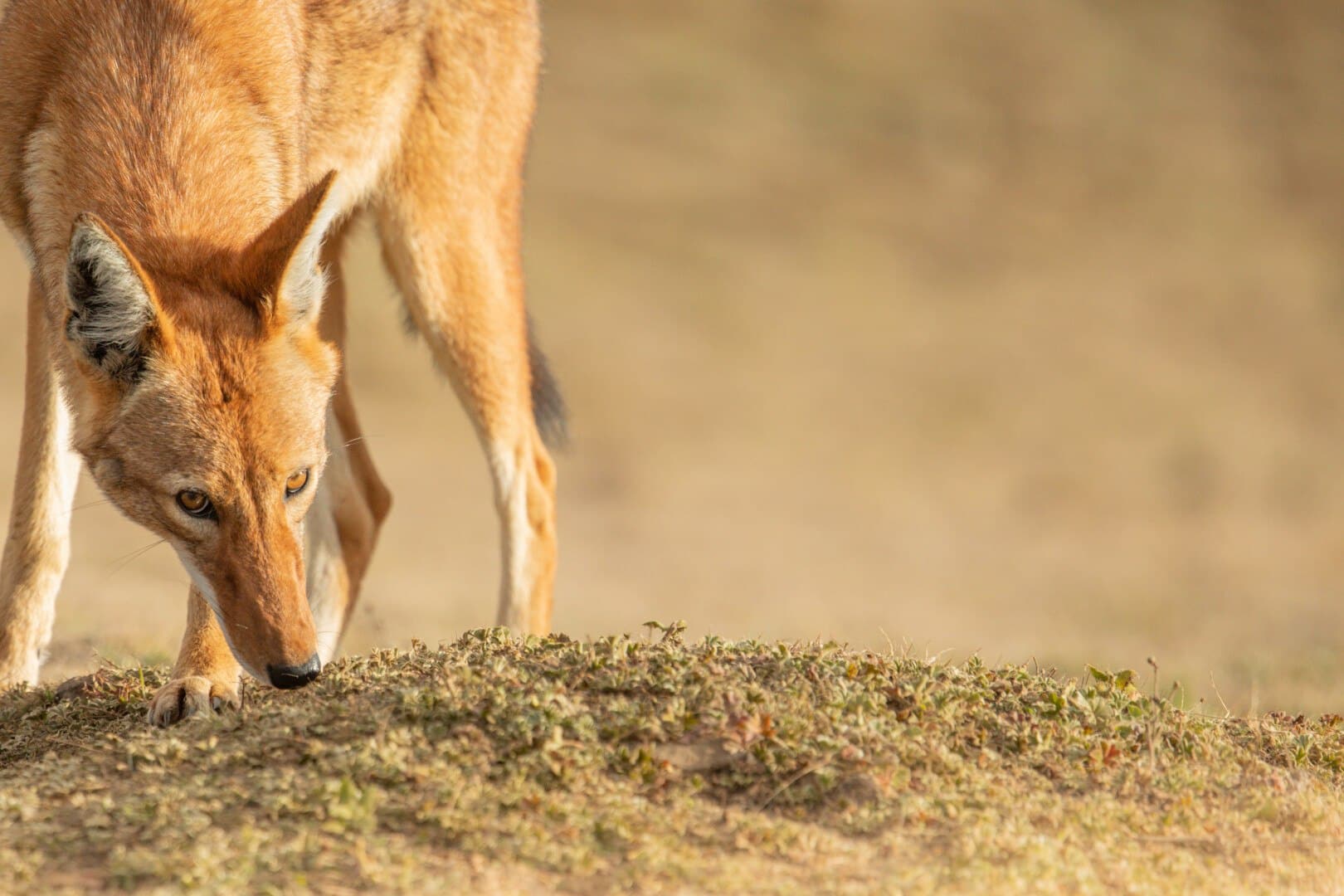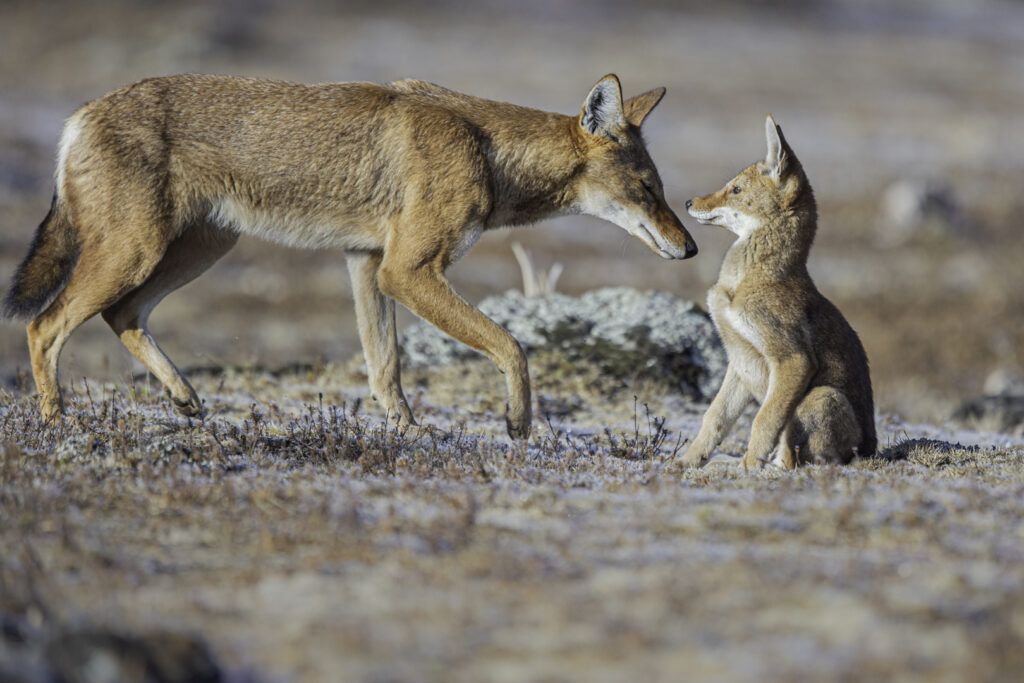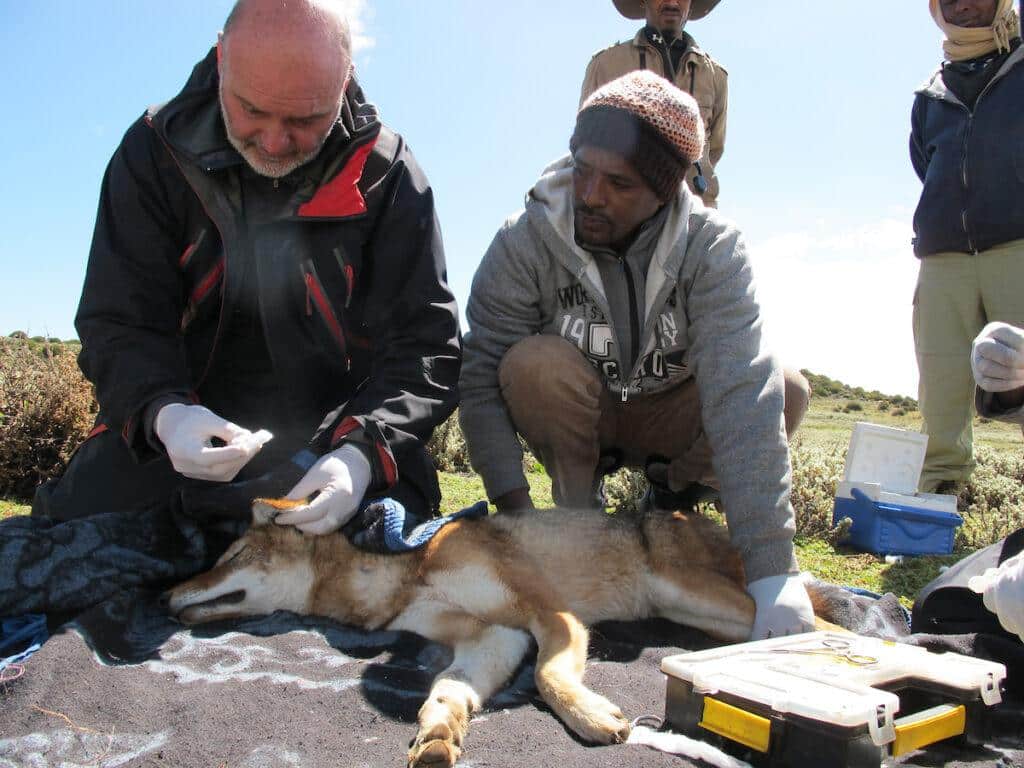In spring, Dr. Jorgelina Marino, Science Director of the Ethiopian Wolf Conservation Program (EWCP), returned to the field in the highlands of Ethiopia’s Bale Mountains. Flying from her home in Oxford, England, she arrived at EWCP’s headquarters on the eve of Ramadan and met with her team to begin efforts to catch, tag, and release Ethiopian wolves.
The Ethiopian wolf is Africa’s most endangered carnivore and the world’s rarest canid. Only about 500 wolves remain in the highlands of Ethiopia, the only place in the world where they are found. Their biggest threats stem from the rapid growth of human populations throughout the country—habitat loss and the spread of disease from domesticated animals. EWCP’s work is critical to preserving the health, safety, and habitat of these rare wolves.
On this particular trip, Jorgelina and her team focused on capturing Ethiopian wolves living in the remote region of Morabawa. It was her first time visiting this area, so she was excited when they caught two young female wolves from the Chalalaka pack, who they sedated, vaccinated against rabies and canine distemper, and fitted with colorful ear tags. These tags allow Jorgelina to remotely track the movements of the wolves via an app, and this data will inform EWCP’s efforts to keep this pack’s habitat safe.
Read the full recap of Jorgelina’s trip to Morabawa here.




2 Comments